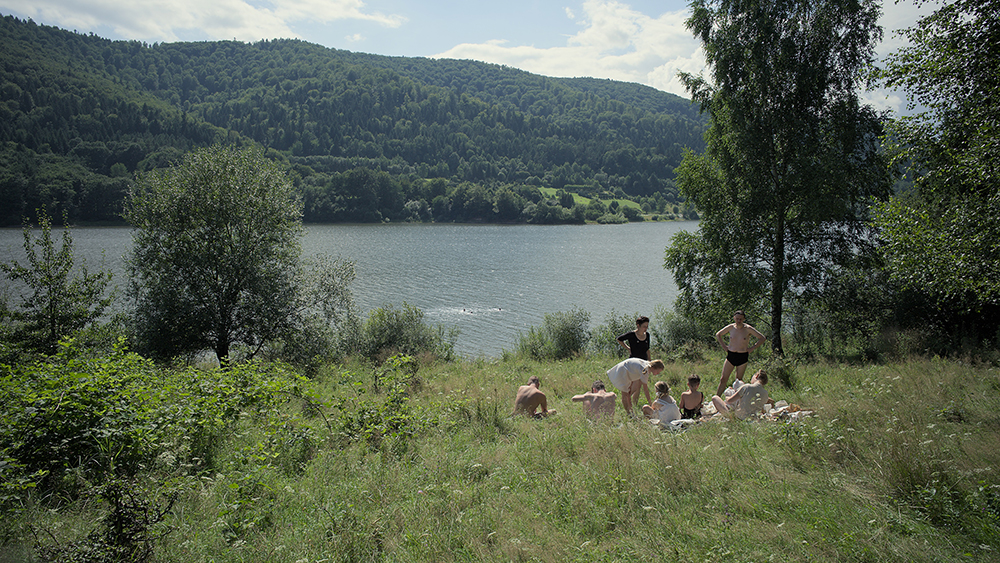‘The Zone of Interest,’ ‘The Settlers’ score Fipresci awards in Cannes
Jonathan Glazer’s “The Zone of Interest” has scored a Fipresci award in Cannes.
The jury of the International Federation of Film Critics praised the film “for its formal radicality, the complexity of the sound and score, and its contrast between the invisible atrocities behind the wall and a supposed paradise,” Fipresci stated on Saturday.
“By presenting the horror as something usual, and using everyday-like dialogues, it’s a reflection on ignorance as a disease that connects the past with the present.”
Glazer’s take on a Nazi family living next door to Auschwitz and enjoying it – loosely based on the novel by Martin Amis, who tragically passed away on May 19, just before the premiere – has been getting rave reviews at the French festival, becoming one of the frontrunners for this year’s Palme d’Or.
Christian Friedel stars as real-life SS officer Rudolf Höss, joined by Sandra Hüller playing his wife, Hedwig.
“It’s a remarkable film – chilling and profound, meditative and immersive, a movie that holds human darkness up to the light and examines it as if under a microscope,” wrote Variety’s Owen Gleiberman.
“In a sense, it’s a movie that plays off our voyeurism, our curiosity to see the unseeable. Yet it does so with a bracing originality.”
A co-production between U.S., U.K. and Poland – with House Productions, Film4 and Extreme Emotions on board – “The Zone of Interest” is an A24 release.
Paweł Pawlikowski’s regular collaborator Łukasz Żal lensed the film, while Mica Levi was responsible for the unnerving soundtrack, called by Gleiberman “eerie in the extreme.”
Glazer is also behind “Sexy Beast,” “Birth” and, more recently, 2013 sci-fi curio starring Scarlett Johansson, “Under the Skin.”

The Settlers
Courtesy of Quijote Films
Venturing outside Cannes’ official selection, the jurors also prized Un Certain Regard Western “The Settlers” by Felipe Gálvez Haberle, awarded “due to its skillful storytelling, which sheds light on significant and often overlooked socio-political conflicts inherent in the history of Latin American colonization, and it’s distinct approach to its theme through its filmmaking style.”
The film, set in 1901, focuses on three men hired by a Spanish landowner to mark out his property. And, if needed, to get rid of the Indigenous tribes that still call it home.
“I love to be controversial,” the director told Variety earlier this week. “If something is controversial, it’s a good sign. I am trying to provoke with my film, because this conversation is far from over.”
France’s MK2 handles international sales.
Finally, the jury – Thomas Abeltshauser, Olivier Bachelard, Constant Carbonnelle, Léon Cattan, Andrea Crozzoli, Youngmee Hwang, Karen Krizanovich and Nicolás Medina, presided over by Hsin Wang – spotlighted one more film: “Power Alley.”
Brazil’s Lillah Halla’s feature debut – sold by M-Appeal and shown in Critics’ Week – takes on illegal abortion as talented volleyball player Sofia suddenly finds herself pregnant.
“The conflict of [the film] deeply affects our protagonist personally, but that does not make it an individual drama only,” said Halla.
“After all, it’s not only about desiring. It’s about the (non-) annihilation of one’s desires. But Sofia’s luck is that, beyond being determined, she is no longer alone.”
“Power Alley” is produced by Brazil’s Arissas and Manjericão Filmes, In Vivo Films in France and Cimarrón Cine in Uruguay.
“Combined with compelling performances, vibrant editing, engaging music and a thrilling narrative, this film is making the point that abortion rights are human rights,” the jury summed up.


